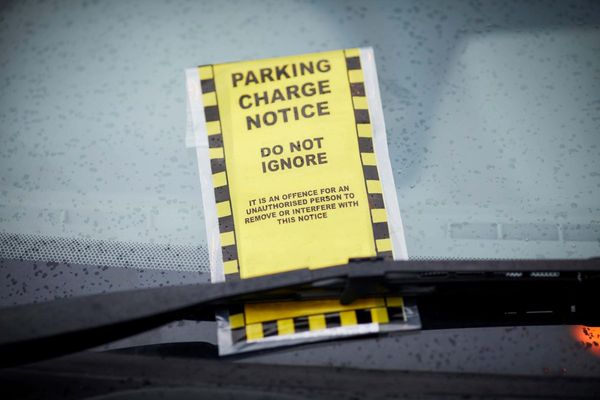
Why does my toddler want to play with the box, not the toy? Joe Hadley, Kansas City
Send new questions to nq@theguardian.com.
Readers reply
Because he/she thinks he/she is a cat. Alan Davis
The youngster or child can play with the box in they way they choose – it can be anything at all. There are no boundaries or rules and it can change whenever they want. This makes a box an endless toy with numerous possibilities: a rocket, a castle, a den, a house, a teddy, a doll’s house, a car, a plane, a computer. It can also be a quiet or safe space, which children need at times. They can develop their imagination, process events or re-enact the way they perceive the world around them. Most of all, boxes are free and come in all shapes and sizes. The colour can be changed and boxes added on. Jacqui Bird
A toy limits the imagination. It can only be what it was meant to be. Terry Nord
We learned with our eldest not to waste money on toys until he was about three years old, and so saved money on our younger two. We were told it was because toddlers’ eyes can’t pick up subtleties of colour, movement and shape until then – the simplicity of the box is their ideal “toy”. Colin Russell
Because she knows that the box is only around today and destined for the bin. The toy can wait. Maggie Kemmner
“Enclosure” is a common childhood schema that children explore repeatedly in their play at this age. My son loved Clifford the Big Red Dog. We made him a “kennel” and he slept in it for several nights. See – unlimited possibilities! Way more than the toy that was actually in the box! He is 24 now and we still reminisce about doing this … Carolyn Maxwell
Maybe flip the question. Why does it strike an adult as odd that a child loves a box (a big, tactile, cozy thing) more than a hyper-engineered product for sale to adults? Janne Lazarus
It’s a sign of an exploratory mind where the child is discovering the possibilities and nature of the box and cardboard. If she/he is actually playing with it, then they are using their imagination. Read Toys and Playthings by John and Elizabeth Newson for real insight into how children use their imaginations playing with very simple objects. Peter Saker
The majority of toys seems to be hard, coloured bits of plastic, usually with some licensed intellectual property design to suck them into a lifetime of consumer loyalty. A cardboard box seems far less harmful. Jonothy
I either heard or read about this a long time ago; it was explained that a small child is in a world designed for adults, ie chairs, tables, door handles etc. By playing with a box, a child has a perspective on size in all dimensions. Even if the box is bigger than them, it still equates to their size, as a room would to an adult. Peter
Toddlers knows what’s fun! One year, the company Christmas present came in a large box the shape of a brick, only five times bigger. I very nearly asked all my colleagues to drop their empty boxes in our biggest conference room so I could build a castle. Still wish I had. MooAndToo
Used to be even better when your supermarket shopping came home in cardboard boxes (supermarkets used to have a big pile of them by the checkouts). Many a suit of armour or space suit constructed from these … EGriff
Box den parties are excellent for birthdays. Collect up all the really big boxes through the year (I also collect them from work), then, for a birthday, take them into the garden with some gaffer tape and scissors and make a massive cardboard den. Isthisyoursanderling
One of the most useful parenting sources is the Calvin and Hobbes cartoons, from Bill Watterson. They are essentially a window into how the world looked when we were young. For Calvin, the stuffed tiger Hobbes is a real companion, snowmen come terrifyingly to life and a cardboard box is anything from a rocket to a time machine to a clone factory. Also, they are essentially Watterson’s memoir of his childhood, which gives comfort to anyone with an exhausting six-year-old. Anotherusername
I’m 59 and still love big cardboard boxes! They’re a useful arts and crafts resource, for starters. They’re also fun to interact with physically (cut the smooth surface with a knife), the same way popping bubble wrap is destructive fun. A fresh box has a certain smell, too. Do you like being the first one to stick a knife into the peanut butter jar? Do you attack the surface mindlessly, or do you think about it for a second or two and enjoy the shape the tip of the knife left behind, akin to working with modelling clay or sand at the beach? Cardboard is tactile and malleable.
A cardboard box engages your physical and mental senses. It sparks imagination. Because it’s “just” a cardboard box destined for the recycling bin, there’s no hesitation to play with it. If you make a mistake, it costs you nothing. You can experiment with it to your heart’s content. Cardboard makes you feel free to go places ... JaneMarple
One of my favourite old photographs is of my four children sitting in a row of varying sizes of boxes, “travelling by bus” in the garden. They were out in their bus for hours, enjoying the scenery and chatting with their passengers. No TV, just imaginative children – and a few hours’ peace for Mum and Dad. Gilliver
When my lad was three, I flattened a cardboard box, got a marker pen and allowed him to design Hamburg airport, with runways, a helipad (hubschrauberlandeplatz), a car park, approach roads etc. It was an eventful time for Hamburg airport, its smooth running often disrupted by spectacular collisions and invasions by endangered and long-extinct animals, but we spent months playing with it until it wore out completely. He’s completely forgotten about it now, but I miss Hamburg airport. alexito






